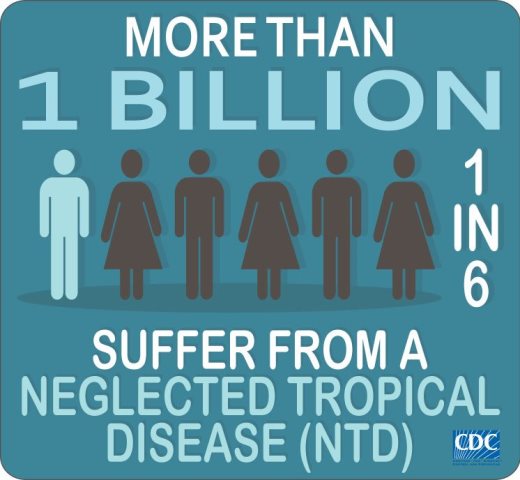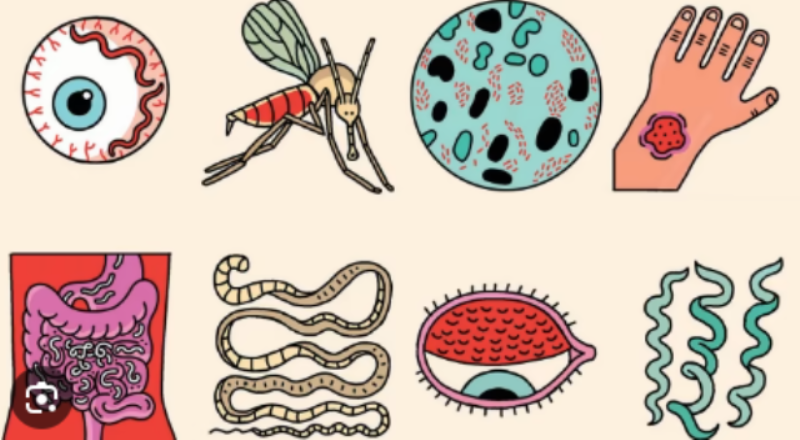Rwanda says it is committed to eliminating Neglected Tropical Diseases (NTDs) by 2030 to achieve universal health coverage, officials at Rwanda Biomedical Center (RBC) announced on Tuesday, January 30, 2024.
RBC says this achievement will be possible through community engagement and multi-sectoral collaboration.
Neglected tropical diseases (NTDs) refers to a diverse group of parasitic and bacterial diseases that cause significant morbidity and mortality in more than 1 billion people worldwide, which disproportionately affect poor and marginalized populations.
As part of global observance of Neglected Tropical Diseases 2024 campaign, says RBC, Rwanda will, through partnership with all stakeholders, raise awareness and advocate for control and elimination of Neglected Tropical Diseases by focusing on community engagement and multi-sectoral collaboration to improve sanitation and hygiene practices.
There are about 20 diseases that affect 1.7 billion people worldwide.
Eight of the 20 diseases classified as neglected tropical diseases (NTDs) by the World Health Organization (WHO) affect thousands of people in Rwanda every year.

The most common NTDs in Rwanda are: intestinal worms (affecting 41 per cent of Rwandans, with a prevalence of 48 per cent in adults), bilharzia/schistosomiasis (1,000 cases), podoconiosis (about 6,000 cases annually), scabies (100,000 cases), taeniasis (3,000 cases), cysticercosis, rabies from dog bites (1,000 cases) and snakebite envenomation (1,500 cases).
“Neglected diseases are mostly found in sub-Saharan Africa. They are neglected because they do not receive the same attention as other diseases that affect the world,” says Dr Aimable Mbituyumuremyi, Division Manager of Malaria and NTDs Division at Rwanda Biomedical Centre (RBC).
According to Dr Mbituyumuremyi, “These are diseases that have been a problem for more than 20 years, and yet the resources allocated to fighting them are still meagre.”
According to Dr Mbituyumuremyi, another reason is that even people affected by NTDs tend to ignore their effects. This makes medical treatment more difficult.
According to the World Health Organisation (WHO), the diseases can be eliminated if the efforts of the government, non-governmental organisations and the general population are combined.
“Concerted efforts are required to reduce the health burden of NTDs in Rwanda. There’s a need for a rigorous awareness campaign to make people aware of the use of clean water and the best practices in sanitation,” says Dr. Jules Mugabo, in charge of Malaria and NTDs at WHO Rwanda.
“The diseases can be prevented, reduced and even eliminated. Because they affect many people and contribute to poverty levels, they shouldn’t be called neglected,” he added.
According to the Ministry of Health, “remarkable progress” has been made in fighting NTDs in Rwanda.”
The World Health Organization has confirmed that sleeping sickness was eliminated from Rwanda in 2002; it was historically or potentially endemic but is no longer public health problem for the Rwandan population.
Since 2008, more than 65 million treatments for worm infections and schistosomiasis have been administered to children aged 1 to 15 years through biannual deworming for worm infections and annual treatment for schistosomiasis.
According to Rwanda’s Health Ministry, deworming, combined with progress in water, sanitation, hygiene, awareness and intestinal worm prevalence, decreased from 66 percent in 2008 to less than 20 percent in 2020 among surveyed school-aged children.
